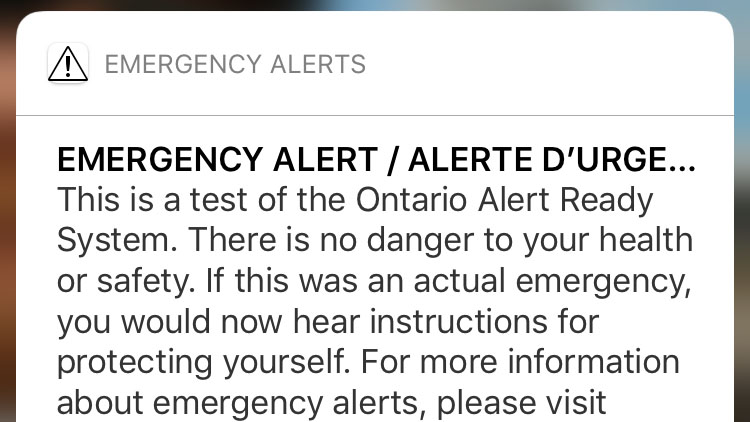Health clinic providing first point-of-care for refugees celebrating 10 years of service
Posted June 16, 2022 1:12 pm.
Last Updated June 16, 2022 6:32 pm.
A health care clinic out of Toronto’s Women’s College Hospital that treats the most vulnerable refugees is celebrating 10 years of service as they take on a new challenge of helping Ukrainians displaced by the war.
Medical Director of Crossroads Clinic, Dr. Meb Rashid, tells CityNews they treat people from all over the world who often have never had access to primary care.
Most of their patients, who are newly arrived refugees or refugee claimants, are found through more prominent refugee and claimant shelters in Toronto.
“We’ve seen several people who arrive have never had their blood pressure checked or women who have never had a pap test. We have also seen increasingly over the last 10 years, more people arriving with chronic illnesses,” said Dr. Rashid.
“Many have had arduous and torturous journeys to Canada, which puts them at risk for things like tuberculosis and infectious diseases. And then, perhaps most obvious is that given what people have endured, we see fairly high rates of mental health issues, particularly post-traumatic stress disorder.”
“Our model of care is to follow them for two years until they get stabilized here in a way until they get oriented, and then we find them clinicians in the community to follow-up,” he added.
They not only provide health care, but they work alongside settlement workers who provide housing and access to education and access to legal channels.
“Nothing affects their health more than when you’re finally accepted to stay. Living as you can imagine, sometimes for a year and a half, two years, not knowing if you’ll be sent back to a place where you might very well be afraid to return to, to live without hanging over your head, adds tremendous distress.”
Dr. Rashid said they have been working on connecting Ukrainian refugees with other clinics for the last few months as they are relatively small and cannot take on everyone.
“I think our contribution to this migration is we put out a call to colleagues across the city and beyond. And not surprisingly, we have over 60 clinics who have signed up to take up the newly arrived Ukrainian refugees here in Canada,” shared Dr. Rashid.
“So it’s really been a great response from the primary health care community.”
He added it wasn’t without difficulty.
“It’s a bit of a challenge after two years of the pandemic. People have retired. There’s been a real struggle in terms of mobilizing folks out there. But I was thrilled to see the response. So many people stepped up and said, ‘Absolutely, we will find space to be able to absorb Ukrainians and other refugees.'”
Since it opened in 2012, the clinic has seen over 5,000 people from all around the world.
“We’re seeing very different groups than we saw 10 years ago, and it’s a reflection of what’s going on in the world,” the doctor continued. “So it’s always interesting as we learn about different groups in different places.”
He said sharing the knowledge they have learned from treating refugees has been a key mandate of the clinic since its inception.
“If we are seeing a large group, [it] becomes imperative for us to speak about what we’re seeing to guide some of our colleagues in the community who may not be seeing people in large numbers,” explained Dr. Rashid. “So sharing our experiences, I think, is a really important part of the work we do either through conference presentations or research articles that we try to publish.”
“We always say we deal with the world’s heroes, people who are sacrificed so much in their lives often for what they believe in,” said Dr. Rashid. “Sometimes, it’s an atrocious price they pay for what they have chosen to do. So in many ways, it’s helping ease them into the transition.”
When asked what he hopes people will take away from the 10 years of service they’ve provided for refugees, Dr. Rashid said seeing how those who are refugees put their lives together is so important, and he has “the best job in the city.”
“If you follow people on long enough, refugees do well. Rates of employment are very high. They do end up contributing quite dramatically to Canadian society. And I think that’s not always how they’re portrayed,” he said.
“Not a day goes by where I don’t see someone who’s lived through horrors that sometimes I would imagine would break me, but more often than not, they’re able to put their lives back together.”
He added that compared to other countries, Canada still takes in a relatively low number of refugees.
“The number of refugees globally has been growing exponentially over the last 10 years. And you know, in the end, over 80 million displaced people globally when 10 years ago when we first opened there was only 25 million. As that happens, Canada still takes a relatively small number, and I think there’s always capacity for us to do more.”
Since Russia invaded Ukraine in February, the federal government has approved over 130,000 temporary visas for Ukrainian nationals and their families.
Over 43,000 Ukrainian nationals or Canadian permanent residents of Ukrainian descent have arrived in Canada since January 1.
Clinics specifically treating refugees have popped up across urban areas in Canada over the last 20 years, with locations now in British Columbia, Edmonton, Calgary, and Regina.










